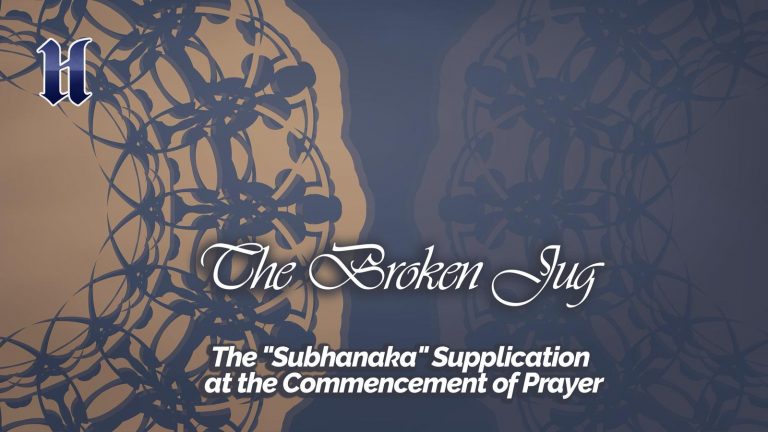Question: Some see it as an obligation to follow a certain “murshid” (spiritual master) and assert that it is not possible to be saved without pledging allegiance to such a master. Could you state your opinions on this?
Answer: There are two meanings for the word murshid, the first being a general term and the second being associated with a Sufi context. In its general sense, murshid denotes a guide who averts people from straying to ominous trails and shows them the righteous path, who awakens hearts to the Divine, who opens minds, feelings, eyes, and ears to certain truths, and thus who guides them to the horizons of the heart and spirit. In this respect, it is possible to see a person giving a sermon in a mosque or giving a religious talk in a circle as murshid. In the same way, a shopkeeper who pours the inspirations of his heart into another’s by talking with a visitor to his shop about the truths of faith can, in a way, be seen as a murshid, or spiritual guide, as well.
As for the more specific meaning of “murshid” in a Sufi context, it refers to a person who had initially become the disciple of another murshid, who went through rounds of forty-day retreats (chila), who ate and drank little, who slept little, and who passed different levels at spiritual journeying. That is, murshid is a person who experienced astonishment before the Divine (hayra) and annihilated his carnal soul in God (fana), who attained a certain spiritual rank on the path to find Him, and who in the end was entitled as a new spiritual master by his own master to guide others to the Truth and convey the Divine messages to them. This entitlement is named khilafa (vicegerency) and the person who is entitled is named a khalifa (successor or vicegerent). I think the initial question was related to this Sufi sense of the word murshid; therefore, I would like to elaborate on it a bit further.
Perspicacity of the Murshid and the Potential of the Initiate
From past to present, there have been so many great figures who were raised by following one of the Sufi paths that lead to truth—Naqshbandi, Qadiri, Shadhili, Rifai, Badawi, and the like. Particularly, when some people with potential and ability find a perfected master, they experience a metanoia and become radiant light sources. For example, when Muhammed Lütfi Efendi of Alvar and his father Hüseyin Kındıği Efendi, who were from the lineage of the Prophet, arrived at Sheikh Kufrawi’s Sufi lodge in the province of Bitlis, the sheikh paid attention to them and treated them as special guests, probably since he discovered their potential. Eventually, he entitled both of them as spiritual masters. On witnessing this, the disciples who had served the sheikh until then accosted the two newcomers at night. Suddenly the door burst open; Sheikh Kufrawi came in and brought them to their senses: “You disciples! Hüseyin and Muhammed Lütfi Efendis did not need me. It was their perfection that led them here.” Some people have such a God-given potential that they are ready to give light without a touch of fire, as it is referred to in the verse (translated as), “…The oil almost gives light of itself though no fire touches it,” they can rocket to certain spiritual ranks by a single puff. And there are certain initiates who, in spite of having potentials to thrive elsewhere, prefer to serve loyally to their sheikh. For example, in spite of having completed his education at Islamic disciplines, Mawlana Khalid al-Baghdadi served as a sweeper at Abdullah Dahlawi’s lodge for twenty years, and then returned to Baghdad. As it is known, Khalid al-Baghdadi is accepted as the reviver (mujaddid1) of his time. With respect to his character and way of guidance, he resembles Bediüzzaman Said Nursi very much. When we study his letters, we see that he invited his students to sincerity, brotherhood, and dignified contentment (ghina): “Never ask for posts and positions for which you would most certainly pay a price and refrain from becoming obliged to anyone, do not establish relations with authorities (in order to gain material benefit from them), do not covet what somebody else possesses, and be indifferent to anything inviting you to worldliness…” In terms of their main approach, these pieces of advice coincide with the points Bediüzzaman makes in his epistles on Sincerity2 and on Brotherhood3. Such a great figure humbly served as a sweeper at a Sufi lodge for twenty years.
Even if the Murshid is a Perfected One
Getting back to our main topic, in Sufi tradition there is a rank of being murshid in its true sense. The important figures who attained this rank appraised the people who became their followers very perspicaciously—sometimes from their faces, looks, and even from the irises of their eyes—and discovered their aptitudes and capacity. Accordingly, they guided their disciples to realize their spiritual potentials and commissioned them to guide others in different places when the time came. In this respect, if there are any guides like Abdul Qadir al-Jilani, Mawlana Khalid al-Baghdadi, Muhammad Bahauddin Shah an-Naqshband, Alaaddin Attar, and Abu’l Hasan ash-Shadhili, who are truly profound in every aspect, then it is very important to benefit from their guidance in order to realize one’s spiritual potentials. But it should not be forgotten that God Almighty appointed different persons to guide others through different methods according to the conditions and needs of their time. In this respect, it can be said that had the great guide Abdul Qadir al-Jilani been alive today and used the same methods he used for guiding people in his time, which was inspired from the original teachings of the Prophet, it probably would not help much for curing the troubles of our time. In the same way, if a great figure like Imam al-Ghazali, who was honorably referred as the Proof of Islam, were to suggest the same arguments he used against the anti-Islamic discourses of his time as a prescription to cure today’s troubles, it would not suffice against today’s complicated problems. I am not trying to make any comments with negative connotations about those great masters, let me not be misunderstood; those exalted figures complied perfectly with the requirements of their age and even transcended it.
However, the point I wish to highlight is that the Divine message always comes in accordance with the addressees’ level of cognition, comprehension, and needs. For this reason, I only tried to express a reality. Surely, today’s people have a lot to learn from those great guides and their very valuable works in terms of broadening their horizons of spiritual knowledge. However, struggling against the contemporary form of hypocrisy and antagonism toward faith under the guise of science and philosophy requires relevant background knowledge and arguments. There must be a murshid who can see and read our era correctly, who uses his means accordingly, who distills facts as he should, and who can write appropriate prescriptions so that he can derive appropriate cures for the troubles of our day. When such a guide is found, following him is very significant in the name of taking wing toward the horizons of the heart and spirit. If people remain loyal to such a perfected guide, he can broaden their horizons, clear up the way before them, and thus they can travel in a faster and safer way in their journey toward God. But in my opinion, even if they find a perfected guide who comprehends his age perspicaciously and suggests important solutions for the troubles of the time, people should refrain from reducing and narrowing the issue down only to this person. If you adopt a pressurizing attitude toward other believers and dare to say, “If you do not take a pledge of allegiance to that guide, obey what he says, and read what he writes, then you are misguided,” you will have reduced the issue to bigotry and subscribed to a horrible view about other believers. This is because another person who does not exactly think like you and who has adopted a different line of spiritual journeying can, by God’s grace, walk behind the Messenger of God—the ultimate murshid and the most perfected guide—and can enter Paradise. For this reason, even though it is important to love the circle one is affiliated with, taking the matter to the degree of being unable to stand others and even becoming antagonistic toward them is absolutely wrong.
The Blow on the Spirit of Unity
Since this humble servant also spent his childhood in different Sufi lodges, I occasionally witnessed some people make such remarks. For example, some people quote out of context a saying ascribed to Bayazid al-Bastami, “the murshid of someone without murshid is Satan.” They misinterpret this saying with a narrow understanding and assert that it is obligatory to follow a sheikh from a particular Sufi tradition. In my opinion, this saying of that perfected master stresses the significance and necessity of the issue, but interpreting it in such a narrow frame will mean reducing this statement to a disagreeable one that conflicts with the universal and encompassing nature of Islam, which can give way to subscribing to negative opinions and partisanship. We have the essential disciplines of the Qur’an and the Sunnah in our hands; they possess the immensity and inclusiveness to embrace all of the hearts that believe in them.
Bediüzzaman stated that narrow-mindedness stems from loving one’s own carnal soul—in other words, a person’s attempt to orient everything toward his or her own ideas is a kind of egotism. A different form of this is partisanship of a religious circle, which means seeing the absolute truth as limited to the particular Sufi order, religious group or movement that one belongs to and believing that others are striving in vain. Again, it should be noted that such an approach means subscribing to a horrible view of other believers, which can lead one to a total downfall.
If a person’s arrogance is based on taking pride in being affiliated with a certain religious group, it grows stronger. Those who are affiliated with a certain Sufi tradition, a religious group, or a movement will naturally think they have chosen the right guide and love that person profoundly. On the other hand, they must shun from being unfair about others and condemning them to fallacy. Otherwise, they will have strayed to a devilish path while trying to walk on the righteous one. This danger is possible for everyone. If one of the great figures I admire—such as Imam al-Ghazali, Izz ibn Abdis-Salam, Fakhruddin ar-Razi, Najmaddin al-Kubra—were alive today and gave such a mistaken counsel to the people around them, I would humbly put my head under their feet, kiss their soles, and say, “Sir, you are mistaken on this subject.”
In sum, believing that salvation can only be possible through affiliation with a certain Sufi order, religious group or movement, seeing it as compulsory to follow a certain traditional Sufi master, and seeing those who do not follow that person as misguided is absolutely wrong; it denotes losing in a zone of winning. May God protect believers from such deviations and disasters in these days when we are in such dire need of solidarity and unity.
1. God Almighty sends a distinguished spiritual guide (mujaddid) in every century to realize a revival in religion. (Ed.)
2. Nursi, Bediüzzaman Said, The Gleams (Trans.), The Twenty-first Gleam, New Jersey: Tughra Books, 2008, pp. 225–235
3. See Nursi, Bediüzzaman Said, The Letters (Trans.), The Twenty-second Letter, New Jersey: The Light, 2007, pp. 281–294
This text is the translation of “Kalb ve Ruh Hayatında Mürşidin Rolü“






